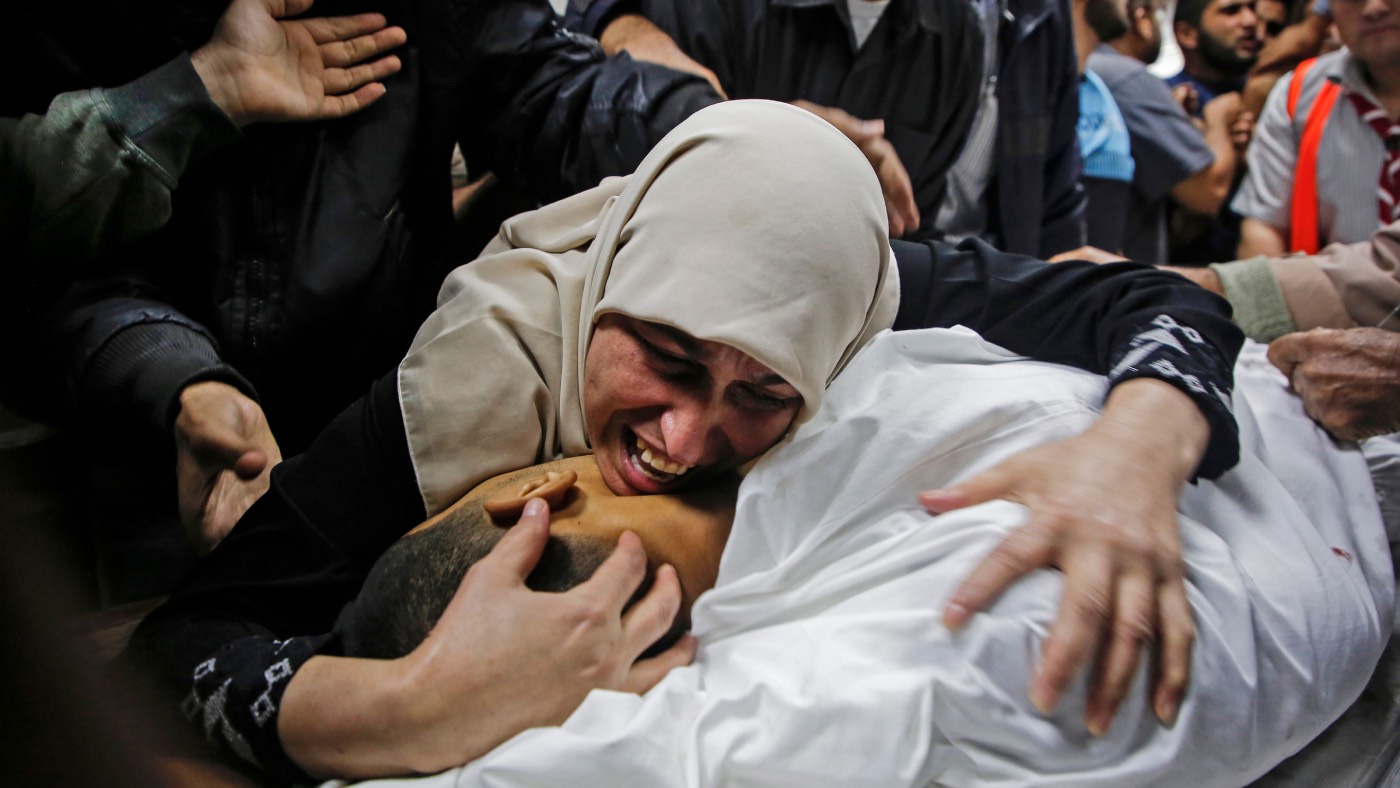Will Israel-Gaza violence develop into full-blown war?
Renewed eruption of fighting comes after period of relative calm

A free daily email with the biggest news stories of the day – and the best features from TheWeek.com
You are now subscribed
Your newsletter sign-up was successful
Israel and Gaza are exchanging fire again after an Israeli air strike killed a senior commander of the militant group Palestinian Islamic Jihad.
At least 160 rockets have been fired at Israel from Gaza since the killing and the Israeli military has launched multiple strikes on targets in the Gaza Strip.
Baha Abu al-Ata died along with his wife when a missile hit their home. Four of their children and a neighbour were reportedly injured.
The Week
Escape your echo chamber. Get the facts behind the news, plus analysis from multiple perspectives.

Sign up for The Week's Free Newsletters
From our morning news briefing to a weekly Good News Newsletter, get the best of The Week delivered directly to your inbox.
From our morning news briefing to a weekly Good News Newsletter, get the best of The Week delivered directly to your inbox.
The Guardian says the killing has “kicked off a fresh round of violence, with Israel scrambling fighter jets to bomb Islamic Jihad fighters including a training compound and weapon storage sites”.
Israel's Prime Minister Benjamin Netanyahu insisted that Abu al-Ata was a “ticking bomb” intent on carrying out attacks.
He claimed that Abu al-Ata: “Initiated, planned and carried out many terrorist attacks. He fired hundreds of rockets at communities in the area adjacent to the Gaza Strip, whose suffering we have seen.”
However, at Abu al-Ata's funeral, senior Palestinian Islamic Jihad member Khaled al-Batsh said Israel had made “a declaration of war” with the killing, and pledged that the retaliation would “rock the Zionist entity”.
A free daily email with the biggest news stories of the day – and the best features from TheWeek.com
Hamas, the Palestinian political organisation and militant group in charge of Gaza, said Israel bore “full responsibility for the consequences of this escalation” and warned that the killing of Abu al-Ata would “not pass without punishment”.
The new violence comes after a period of relative calm. Although there have been outbreaks of violence, including clashes on the border last year, which left 168 Palestinians dead and thousands hurt, this is the most significant exchange of air fire for five years.
–––––––––––––––––––––––––––––––For a round-up of the most important stories from around the world - and a concise, refreshing and balanced take on the week’s news agenda - try The Week magazine. Get your first six issues for £6–––––––––––––––––––––––––––––––
In 2014, 2,205 Palestinians (including at least 1,483 civilians) and 71 Israelis (including 66 soldiers) were killed. There were also other major flare-ups, in 2012.
In the winter of 2008/2009, another war between Israel and Gaza left as many as 1,417 Palestinians and 13 Israelis dead.
Although the Jerusalem Post says there are “unconfirmed reports” that claimed Egypt had launched consultations with both sides in an attempt to reach a new ceasefire agreement, there are now fears of a similar conflict.
The BBC’s Middle East correspondent, Tom Bateman, says: “A serious escalation in hostilities is now likely, despite Israel's efforts to signal to Hamas that it has not returned to a wider strategy of so-called targeted killings.”
Israeli newspaper Haartez says “what comes next depends on Hamas” because Israel is “not fully in control of the escalating situation with Gaza's Islamic Jihad”.
The violence is also being seen in the context of political paralysis in Israel. Benjamin Netanyahu is trying to see off his main rival for the premiership, the former military chief Benny Gantz, who has been calling for tougher action on Gaza.
-
 What is the endgame in the DHS shutdown?
What is the endgame in the DHS shutdown?Today’s Big Question Democrats want to rein in ICE’s immigration crackdown
-
 ‘Poor time management isn’t just an inconvenience’
‘Poor time management isn’t just an inconvenience’Instant Opinion Opinion, comment and editorials of the day
-
 Bad Bunny’s Super Bowl: A win for unity
Bad Bunny’s Super Bowl: A win for unityFeature The global superstar's halftime show was a celebration for everyone to enjoy
-
 Epstein files topple law CEO, roil UK government
Epstein files topple law CEO, roil UK governmentSpeed Read Peter Mandelson, Britain’s former ambassador to the US, is caught up in the scandal
-
 Iran and US prepare to meet after skirmishes
Iran and US prepare to meet after skirmishesSpeed Read The incident comes amid heightened tensions in the Middle East
-
 Israel retrieves final hostage’s body from Gaza
Israel retrieves final hostage’s body from GazaSpeed Read The 24-year-old police officer was killed during the initial Hamas attack
-
 China’s Xi targets top general in growing purge
China’s Xi targets top general in growing purgeSpeed Read Zhang Youxia is being investigated over ‘grave violations’ of the law
-
 Panama and Canada are negotiating over a crucial copper mine
Panama and Canada are negotiating over a crucial copper mineIn the Spotlight Panama is set to make a final decision on the mine this summer
-
 Why Greenland’s natural resources are nearly impossible to mine
Why Greenland’s natural resources are nearly impossible to mineThe Explainer The country’s natural landscape makes the task extremely difficult
-
 Iran cuts internet as protests escalate
Iran cuts internet as protests escalateSpeed Reada Government buildings across the country have been set on fire
-
 US nabs ‘shadow’ tanker claimed by Russia
US nabs ‘shadow’ tanker claimed by RussiaSpeed Read The ship was one of two vessels seized by the US military